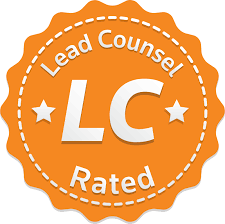PROBATE FAQ
- What is probate court?
“Probate” is a court proceeding in which final debts are settled and legal title to property is formally transferred from the deceased person – called the “decedent” – to his or her heirs. A probate case is filed in the county of the decedent’s legal residence at the time of his or her death.
- Why do I need to have a will?
Anyone who owns real or personal property should have a will. If no will is found, probate court will appoint an administrator to administer the estate and property will be distributed in accordance with Ohio law which may be far different than what the deceased wished.
- Who may make a will?
In Ohio, any person at least 18 years of age, of sound mind and memory, may make a valid will. The will must be in writing and signed in the presence of two competent witnesses who cannot be beneficiaries under the will.
- What is a will contest?
One who has standing may contest the validity of a will arguing that it does not reflect the actual intent of the party who made the will. Standing is limited to those persons named in the will or those that would inherit if the will is invalid.
The most common grounds for contesting a will are:
- Duress
- Fraud
- Under influence
- Lack of testamentary capacity
- Insane delusion
- How does the probate process begin?
The person named in the will as executor files an application with the probate court in the county where the deceased resided to admit the will to probate and to the appointed executor. If there is no will, a person must come forward and ask to be appointed administrator. After proper notice, the court will appoint the executor or administrator and letters of authority will be issued.
- What are the duties of an executor or administrator?
- Collects, inventories and appraises all assets that are subject to probate
- Pays taxes and creditors
- Pays funeral expenses
- Pays the costs of administration, such as for a lawyer and appraisers
- Formally transfers the estate property according to the will, or by the state laws of “intestate succession” if there is no will
- What is a power of attorney?
A Power of Attorney is a written instrument granting authority to another person who becomes an attorney – in fact – to conduct that person’s business affairs. Springing Power of Attorney becomes valid upon some later date when it “springs” into effect. Most commonly, that later date would occur if and when you are no longer able to make decisions yourself or become incapacitated. A durable Power of Attorney remains valid from the time it is executed even after the person granting the power becomes incapacitated. A Power of Attorney terminates upon death. You can revoke the agent’s authority under the power of attorney at any time if you feel dissatisfied with his or her decisions.
- What is a living will?
A living will is a written instrument allowing Ohio residents to declare their intentions regarding the withdrawal or withholding of life sustaining treatment when they are no longer able to make decisions. For the living will to be valid, it must be executed voluntarily by a competent adult and either properly witnessed or notarized.







